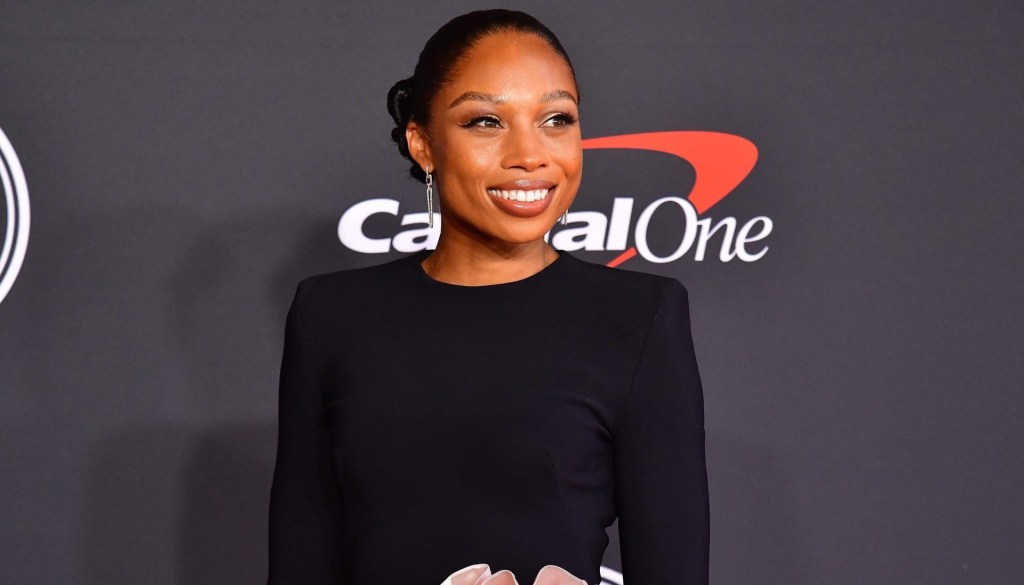By: Peter Stude, @Pete_Studer

Front Office Sports is proud to have sat down with Wayne McDonnell, Jr., the Academic Chair of Sports Management for the Tisch Institute for Sports Management, Media, and Business at New York University. Wayne, who is also a contributor to Forbes Sports Money, was gracious enough to offer up his time and insight into the ever changing sports business industry, why having good writing skills is as important as ever and why it is never too early to start building your portfolio.
In addition to your work with New York University and the Tisch Institute for Sports Management, Media, and Business, you’re also an influential media commentator on a wide range of sports related topics. What does it take to maintain a well-informed opinion on what’s going on in the world of sports?
“I think what’s important here is just being well-read, looking at a wide variety of resources that are out there; particularly on social media. The way we’re getting our information today is vastly different than when I was in college, to say the least, and graduate school. Staying true to the principals you believe in and really taking a good temperature of the environment in sports today. You always want to be very careful how you choose your words because you never know how things may be interpreted.”
“To me it’s just about being very well-read, being very passionate about learning more about a particular topic. Following the right people, reading the right columnists, finding the right periodicals, is very important. People that are trustworthy and who have reputations that are stellar. It’s about taking all of this information and making an educated opinion without getting caught up in the talking head mentality of let’s scream and yell about a particular topic without having a thoughtful and articulate conversation on the matter. That’s what I try to do when I formulate opinions for a television interview, or an article I’m going to write.”
You’ve written for Forbes Sports Money for a number of years now. We’re finding that a lot of young professionals take up writing as a way to demonstrate thought, leadership and ultimately position themselves as knowledgeable voices in a particular industry. Can you describe how writing has helped shaped your professional career, or vice versa?
“It’s huge. I think that goes without saying. I think students today, young people today, are really blessed because of advancements in social media. Your voice can be heard right away through a blog, through Facebook, through Twitter, through Instagram. All of these different digital media platforms you can have a voice. Ten-fifteen years ago it was much more difficult. The only people that really had voices were national columnists, newspaper reporters and other people of that ilk.”
“Now what we’re seeing is the newspaper industry is really suffering because of the advancements in technology and digital media. But what I’ve noticed in my career is that writing has been essential. It’s given me a voice. It’s given me a platform. It’s allowed me to express myself and to really delve into topics that I’m passionate about. When I first started my career, these options weren’t available, but I really have to think meeting people like Mike Ozanian at Forbes, or being encouraged to get on Twitter and to start to put things out there.”
“The other important thing is that you have to make sure you leave a positive impression on people as well as making sure that you’re fair and equitable. If someone reads an article you wrote it should be balanced. You have an opinion, but you’re not saying anything disparaging. Writing is very important to everything that I do whether it be as an academic chair of a sports management program, as a sports commentator, or as someone who’s writing for Forbes.”
Are there any other channels that would help young professionals gain traction in the industry?
“You should build a portfolio as soon as you can. To give an example, we had a young man here [NYU] a number of years ago whose passion was hockey and wanted to work for the Rangers. For four years of college he wrote and wrote and wrote. He was eventually able to get an internship with someone who was very reputable in the hockey media world. Worked for him and sure enough the Rangers picked up on it. Today it’s very important to build a portfolio that goes beyond internships. Internships are critical, especially in sports, when you graduate you’re going to have to have two to five truly worthwhile internships under your belt. But if you can provide a portfolio that has a research focus, that really adds to the depth and breadth of your resume. Whether that be writing for a website, blog, things along those lines. With social media today it can be set up pretty easily.”
You’ve assisted in the planning of a number of events covering a number of different issues facing the world of sports from the ‘Culture of Youth Sports’ to ‘Integrity and Ethics in Modern Athletes’. Do you see these as an opportunity to educate or influence? Or is that the same thing?
“It’s about education. No matter what I do in my life or career, I’m always going to be about picking information and bringing it to people in a way that they can digest in understand with the stated goal of educating. What we do with our Sports and Society events at the Tisch institute under the leadership of Associate Dean Arthur R. Miller is challenge people to think critically and to think in unconventional ways and to open their eyes to look at alternative situations and scenarios. I think we’ve done an excellent job trying to educate people on the bully culture in sports and what leadership looks like both on the professional and amateur levels.”
“I think we’ve done a nice job of hitting on topics in terms of social responsibility. Some people might not realize that these are key issues in sports and when we bring them to the forefront. In our well-crafted panels people walk away saying, ‘I didn’t know that. This is a new way of looking this.’ For me, whether it’s an article I’m writing, a television appearance, or standing in front of a classroom, it’s always going to be about educating. I think we do an excellent job of that through our Sports Society events, our panels, and our lectures.”
A common theme in our interviews is the emphasis on increased education in Sports Management and its related fields. Obviously you have a unique perspective as not just an educator, but as the Academic Chair of Sports Management at New York University. Why do you think so many young professionals are turning back to a sports specific education to further their careers? How is this influencing the industry?
“I’m a firm believer that sports are woven into the fabric of our society. And I always look back twenty odd some years ago when I was in school. My parents would never have allowed me to go a sports management program. It wasn’t taken seriously. You were going to be a lawyer, you were going to be an accountant, or you were going to be a doctor. Those were the professions that you should be going into. I think sometime in the last decade we’ve seen that last hesitation and adverse opinion really change direction. Sports is a multibillion dollar business that really started to attract significant people from the Harvard business school and some prestigious academic institutions.”
“We at NYU are really unique in a number of ways. One, we have a cutting edge undergraduate and graduate curriculum. Two, we use the city as a laboratory. Everyone is here and it’s really easy to get high quality guest lecturers, faculty, and adjunct faculty to teach courses. And also students are realizing that finance, accounting, marketing, the law are all deeply woven into sports, so why don’t we just look at all of this from a sports perspective. Compared to what I had to do which was take a traditional corporate finance course and apply it to sports.”
“We have sports finance courses just geared towards the industry. In the past ten years we’ve seen a significant shift and now we’re seeing a lot of programs pop up around the country. Some of high quality and excellence, but some that may not be in it for the right reasons. Our program, we’ve been around fifteen some years and are in our second year as a standalone program. That speaks volume that you have sports as a standalone academic program in a major university like NYU.”
The world of sports business has continuously changed and pivoted in response to both athletes and fans alike. Where do you anticipate there being a need for young sports business professionals in the next five years?
“I’m traditional in the perspective that writing never goes out of style. You have to be able to communicate effectively and efficiently. Any way that you can sharpen those skills. Research is another big thing. You have to be able to have serious research skills because there are so many things that are always changing in sports and being able to look at the history is very important. One of the most important things is that students today need to be more analytical. We’re seeing a big push in sports going the analytics route. Some may agree with it, some may not, but it’s here to stay. It’s about really sharpening the writing and research skills. The analytical skills in terms of statistics and computer programming. Another traditional thing is being able to speak multiple languages. It’s quite common to see a job description where being bilingual is a plus. These are some things that will be very important in the coming years.”
What advice do you have for students and young professionals that want to make an impact on the industry?
“I have a couple of things. The one thing that I always say, I said this to our incoming class a couple months ago. Don’t be ordinary, be extraordinary. Nothing is beneath you. I’ve seen with millennials that there can be a sense of entitlement on occasion. That everything you do in your four years of college is a learning experience that you will use to build a career upon. Never be afraid to take any task that is given to you, and see how it can apply towards what you want to do in sports. Some students have come to me and said why I have to take a liberal arts course, or natural science. I’ll tell them, ‘Look for something in that course, a skill or trait that can actually help you sharpen your skills for what you want to do in sports.’”
“I’ve always felt that students haven’t always capitalized on the opportunities that are presented to them in college and years later they regret not staying in touch with this person, or not performing better in that course. Going in with the right mindset that every experience I’m going to do in the next four years is going to help me. And not just in terms of classwork. The relationships that you develop, whether it be with classmates, faculty, or through internships are going to help tremendously. Sports is a very small world. You never know whose path you’re going to cross on a given day and the impression that will make. Sending thank you notes for an interview, or doing follow ups, informational meetings. Things like that. You want to do things that set you apart. If you want an entry-level job in sports after your college years, it really starts your freshman year.”
“Building those relationships, networking. Building a portfolio of writing, creative work, and research and actively looking to sharpen those skills. It’s not ‘I finish my academic career in May and I get a job in June.’ It starts the moment you get to college and you have three years to thoroughly plan your attack and you have to realize every little thing can help you get to where you want to go.”
Parting Wisdom?
“I’d like to reiterate the importance of students not taking anything for granted. Every task they get they should take with the utmost pride and seriousness. You never know whose watching. Working in sports is a marathon, not a sprint. We live in a society where we want instant gratification. We want the dream job at 25. We don’t want to have to go through the journey. But sports business is a journey. I tell my students that I had a BBA and an MBA and was working at Madison Square Garden by the time I was 22 years old. But I was moving tables. Nothing was beneath me. Everything provided a learning experience because people notice. They notice work ethic, they notice people with pride. It’s ‘Put your head down and get the job done.’ That’s what they want to see. It’s important that students get a hold of that right away and really take it to heart.”
We would like to thank Wayne McDonnell, Jr. for his time and insight and we wish him the best of luck in his future endeavors!
You can follow Wayne on Twitter here or connect with him on LinkedIn here!
















